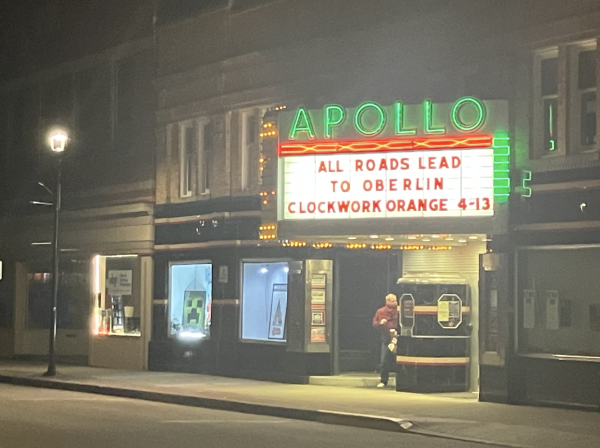Best Picture Countdown: “Green Book”
Mahershala Ali and Viggo Mortensen shine in Green Book, a by-the-numbers film about a Black pianist and his white valet on a tour through the Deep South. Oscar-bait through and through, what the movie lacks in innovation it makes up for in execution. Director Peter Farrelly deftly handles the film’s sensitive subject matter, making the movie feel cliché at points, but never heavy-handed or forced.
Green Book is character-driven from the start, opening with a scene that has no relevance to the plot but sets up Mortensen’s Tony Lip as the stereotypical Italian-American New Yorker of the 1960s. When this rough-talking, hot dog-guzzling club bouncer is hired to drive and protect Black pianist Dr. Don Shirley on his tour through the Deep South, the story unfolds exactly how you expect it to.
Each clichéd beat recounts popular media tropes of interracial friendship, with both characters learning and growing from their time with one another. Between Shirley helping Lip write letters home and Lip introducing Shirley to the joys of fried chicken, the film is remarkably predictable, preventing itself from ever truly excelling.
While the movie is unimpressive with regard to its portrayal of race, its nuanced look at the struggle of feeling alienated from one’s community makes up for this shortage.
“So if I’m not Black enough, and if I’m not white enough, and if I’m not man enough, then tell me, Tony, what am I?” says a tearful Mahershala Ali, capturing the very heart of the film in a single line.
Ali does a fantastic job playing a man out of place among his peers, never quite accepted by either group. In a performance that evokes emotion even in a predictable plot, he drives home the struggle of one’s skin color informing perceptions of their every action. Yet even here, the film fails to reach its potential, as it focuses on Dr. Shirley’s encounters with racism but doesn’t fully commit to exploring his struggles with identity.
Green Book would have been heralded as a masterpiece had it come out 15 years ago, but is unfortunately unwilling to explore any new ground. Society has progressed a great deal in the last decade and a half, and while the film is far from backwards in any of its messaging, it does seem somewhat tame in today’s socio-political climate.
Particularly at Oberlin, well-known for its progressive culture, the movie’s statements seem obvious, bordering on platitudes. If an Oberlin student were to watch this movie, it would not be a learning experience as much as an entertaining one, as it is in many ways a feel-good movie. The same reasons Green Book falls short of becoming a true drama make it an excellent watch for the casual viewer; it has just enough relevance to feel impactful without becoming stressful or calling anyone out, as it perhaps should.
All in all, I would recommend giving Green Book a watch. Yes, it is formulaic, but the performances by Mortensen and Ali alone make it worth watching. With regard to the Oscars, while I don’t expect it to win Best Picture, I wouldn’t completely count it out, as it is exactly the sort of film the Academy loves. Instead, I would expect it to shine in the Acting categories, as both leads have garnered nominations and critical acclaim for their roles.








